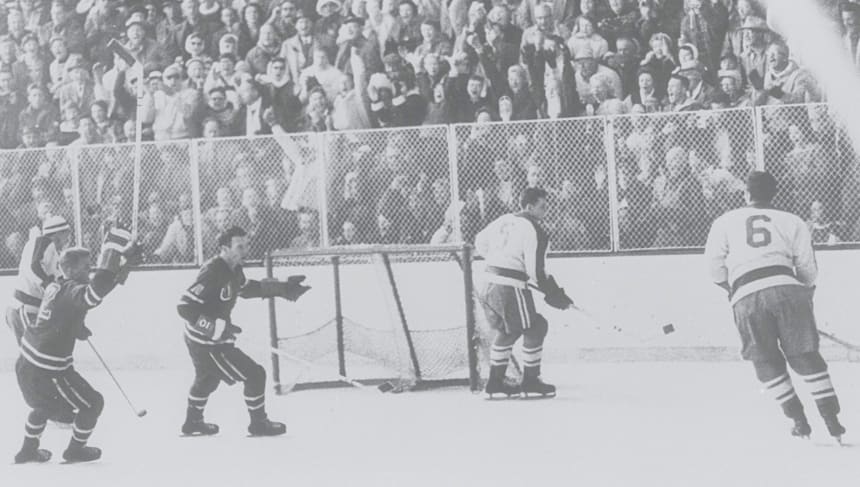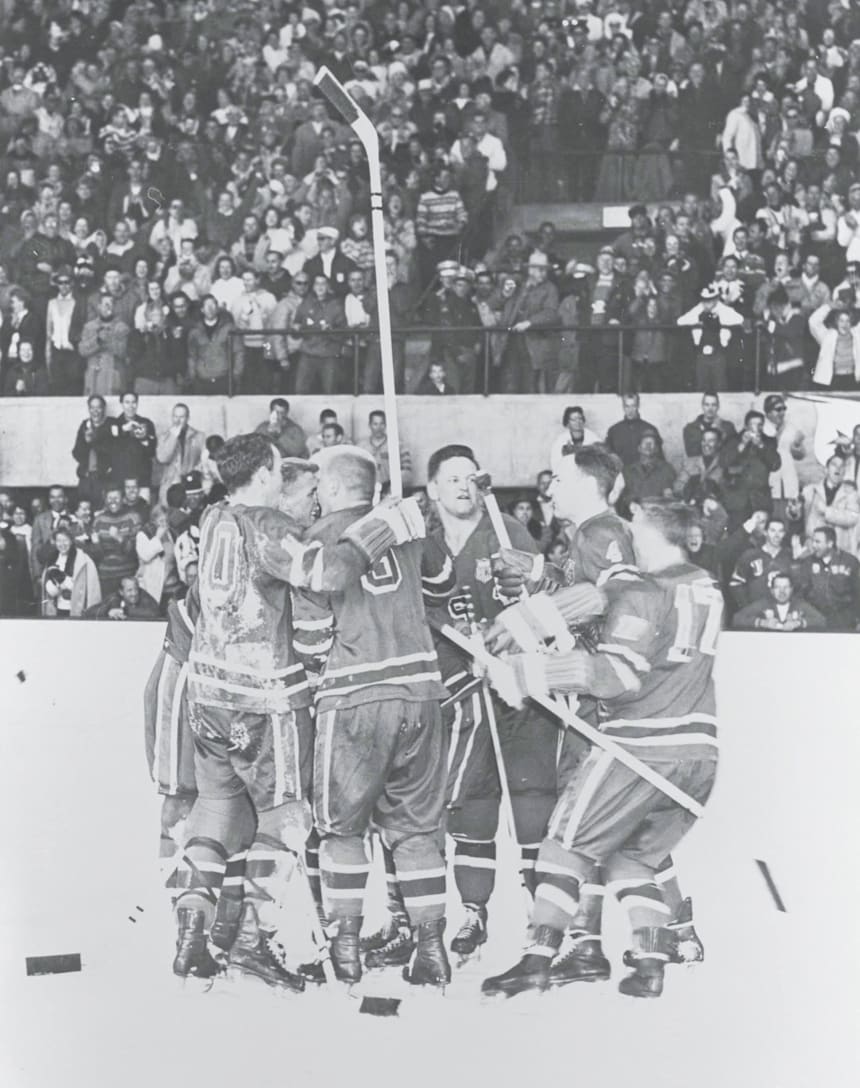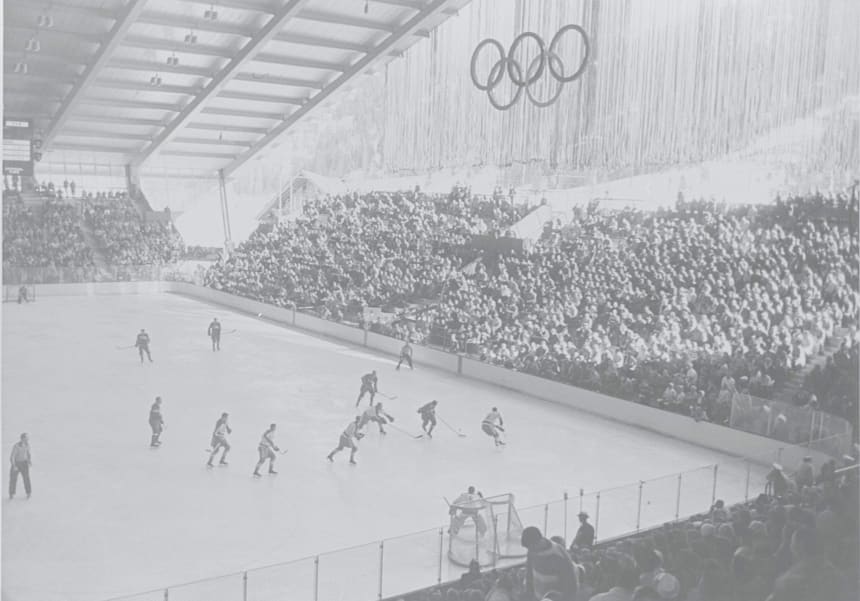USA strike first ever ice hockey gold
There were not many who believed that the USA had much chance of winning Olympic ice hockey gold in Squaw Valley, despite the advantage of a fervent home crowd behind them.
Defending champions USSR were one of four favourites for the title. The other fancied contenders were Sweden, who had pipped the Soviet Union to the world title in 1957; Canada, who snatched world gold from the USSR in 1958 and 1959; and Czechoslovakia, who had claimed two podium finishes at the Worlds over the previous three years. During the same period these four countries had monopolised the medals at the main tournaments, and that pattern was not expected to change in Squaw Valley.

Victorious in six of the eight Olympic competitions that had taken place since the 1920 Summer Games in Antwerp, Canada were represented for the very last time by the club that had featured in the Allan Cup, the country’s national amateur championship. Despite winning the 1959 competition, the Whitby Dunlops turned down the invitation to compete in Squaw Valley, with their place being taken by the Kitchener-Waterloo Flying Dutchmen, who had previously flown the flag for Canada at Cortina 1956. The USA team, meanwhile, was made up of young college players, most of them from Minnesota and Boston.
The nine teams contesting the 1960 Olympic tournament were drawn into three first-round pools, with the top two sides in each section advancing to the six-team round-robin medal group. The hosts sprang a surprise in their opening match in Pool C, beating the fancied Czechs 7-5. The followed up that victory with a 12-1 demolition of Australia to top their pool. Meanwhile, Canada edged Pool A courtesy of a 5-2 victory over the Swedes, while USSR also went undefeated in winning Pool B.
The USA maintained their sparkling form in the final round, seeing off Sweden 6-3 and Germany 9-1 before again putting the Czechs to the sword, this time 9-5. However, with Canada and the USSR standing in their path, a shock gold medal still looked a long way off.

Watched by a crowd of 8,500 and a TV audience of millions, the match between the USA and their northern neighbours was a tight affair, with Robert “Bill” Cleary putting the hosts ahead in the first period from a John Mayasich assist. Paul Johnson doubled the lead on 14 minutes, and though the Canadians pulled a goal back in the third period through James Connelly, they could not pull level, thanks in no small part to the sterling efforts of US goaltender John McCarten, who pulled off a total of 39 saves.
Taking place two days later, the match between the hosts and the mighty Soviet team pulled in an estimated TV audience of over 20 million in the USA alone. Once again it was a Cleary who opened the scoring, though this time it was William slotting home four minutes in from a pass from his brother Robert.
Within five minutes, however, the USSR were ahead, as first Yeniamin Alexandrov and then Mikhail Bychkov found the target.
The USA’s second-period equaliser was another family affair, with Roger Christian serving up an assist for sibling William. The Christian boys repeated the feat in tense final period, Roger once again doing the passing and William the scoring to clinch a thrilling 3-2 win for the USA, as they maintained their perfect record to win their first Olympic title in front of a suitably ecstatic crowd. Canada made sure of the silver in the final match of the competition, running out 8-5 winners over the USSR, who had to settle for bronze.

Coming 20 years before the much celebrated “Miracle on Ice” at Lake Placid 1980, the USA’s gold-medal winning campaign as a whole – and the win over the Soviet Union in particular – would later become known as the “Forgotten Miracle”.
Robert Cleary, the champions’ leading scorer with 14 goals, surprisingly opted not to professional, instead calling time on his career after Squaw Valley 1960. Years later, he explained his decision, saying: “I wouldn’t swap the chance to parade in an Olympic Opening Ceremony for 100 Stanley Cup titles. When it was over we all went back to our lives. That’s what we wanted.”